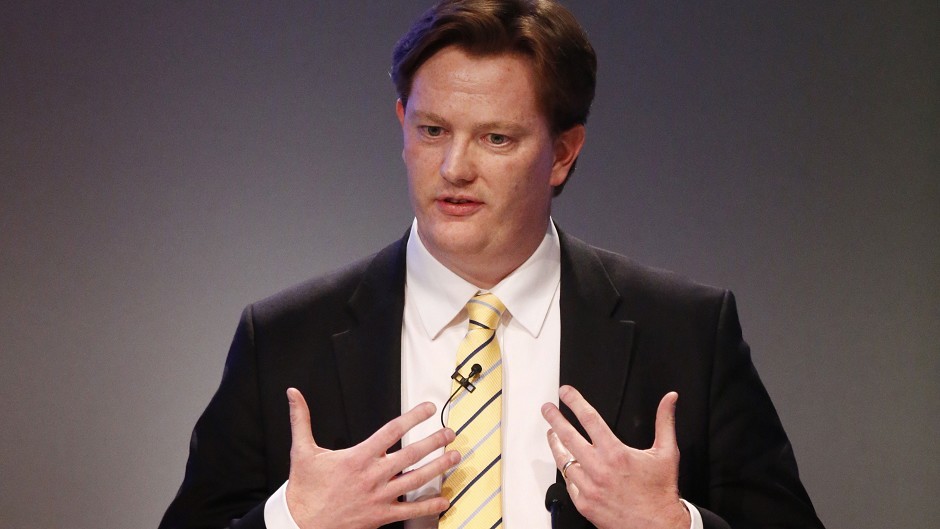Every Scot benefits to the tune of £1,400 a year while the country remains within the UK, according to Treasury figures.
But the cash – the so-called UK dividend – would be lost if voters opt for independence in September’s referendum.
Chief Secretary to the Treasury Danny Alexander said a raft of impartial organisations had concluded that an independent Scotland would start off in a worse position than the UK.
He claimed that even the Scottish Government showed there would be a shortfall between what it collects in tax and is spent on public services.
At the launch of the Treasury analysis of Scottish fiscal policy and sustainability, Mr Alexander accused the SNP of peddling “myth after myth” over the cost of breaking away from the UK.
He said independent forecasters had shown that from the first day of independence Scotland would be borrowing more than 5% of GDP, around £5.5billion – double the UK deficit.
The Liberal Democrat Highland MP highlighted how Finance Secretary John Swinney refused to state what the cost would be of setting up new institutions when challenged 11 times on television yesterday.
The Treasury put the bill for setting up departments such as a passport office, benefits agency and tax collection authority at £1.5billion.
At the same time a separate country would face higher interest rates, adding £500million a year to debt repayments.
The audience in Edinburgh heard that the Office for Budget Responsibility’s “impartial assessment” was that oil and tax revenues would fall by around 95%, as a share of GDP, over the next 20 years.
On top, Scotland faces an ageing population and a shrinking number of working age people to pay for them.
Mr Alexander said: “All of that, easily avoided by staying within the UK is worth £1,400, for each person in Scotland, each year for the next 20 years. That’s the UK dividend.”
The £1,400 per person equated on aggregate to 11% of Scotland’s public spending, the equivalent of two-thirds of the NHS budget, and nearly all education spending, he said.
Individually the £1,400 would cover free school meals for three children, 10 weeks of someone’s state pension and a day’s planned hospital admission, Mr Alexander added.
